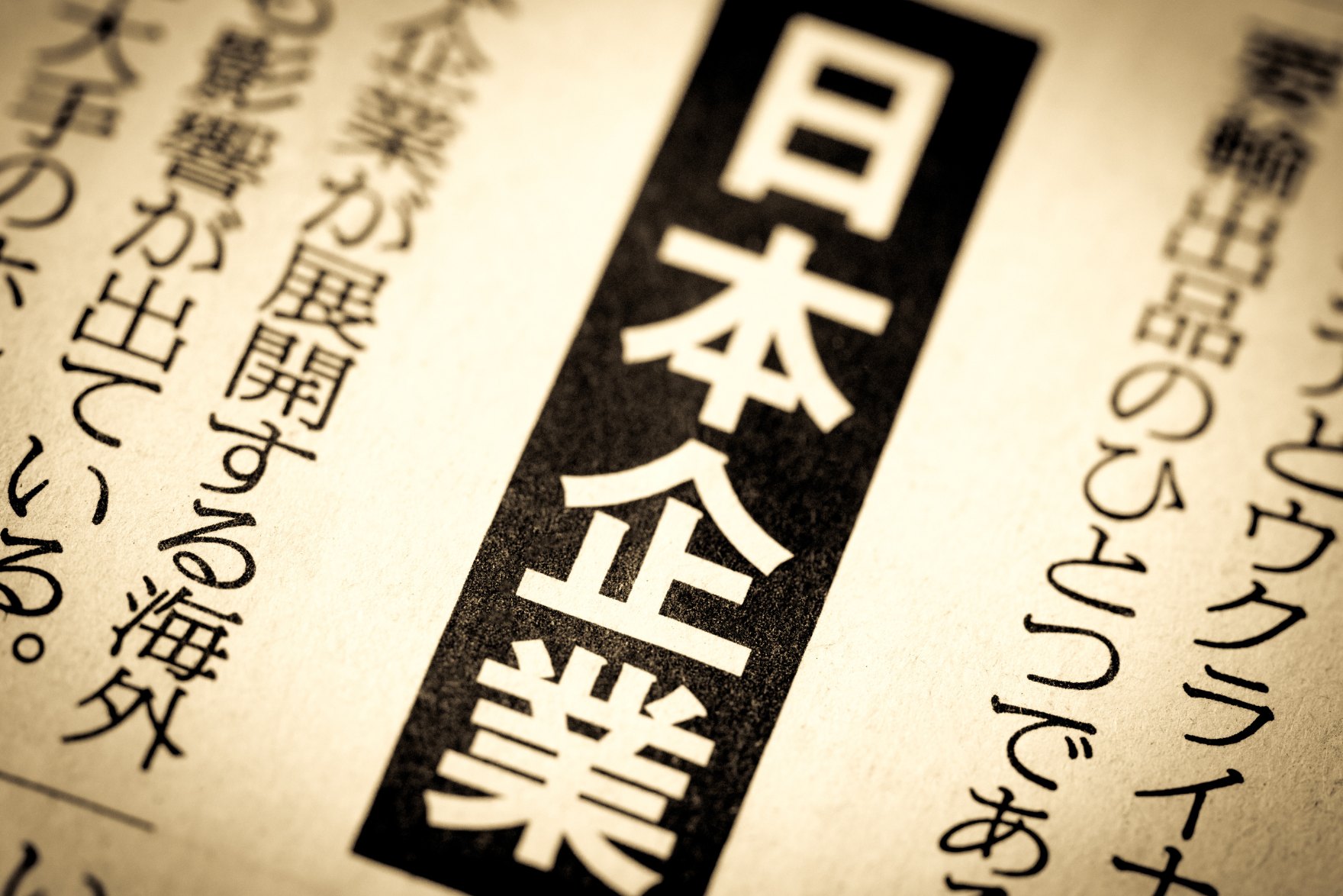Global Career Guide


- Jobs in Japan @ Daijob.com
- Global Career Guide
- Working in Japan
- Decoding Nikkei Companies: Exploring Japanese Tradition in Corporate Culture
Decoding Nikkei Companies: Exploring Japanese Tradition in Corporate Culture

In the bustling job market of Japan, foreign job seekers often encounter two distinct types of companies – Nikkei companies and Gaishikei companies. Understanding the nuances between these two can significantly impact career decisions for expats looking to work in Japan.
Nikkei Companies: Embracing Japanese Tradition
Definition and Characteristics of Nikkei Companies:

Nikkei companies (日系企業 Nikkei Kigyou), also known as Japanese companies, are deeply ingrained in the cultural fabric of Japan. These organizations are typically domestically owned and operated, reflecting traditional Japanese values and practices. Nikkei companies often have a long history in the market and maintain a strong sense of heritage and identity. Deeply rooted in Japanese culture, and embodying the core values and practices of Japanese society, these organizations represent the essence of tradition and continuity in the corporate world.
Key Characteristics:
■ Strong Emphasis on Loyalty and Long-Term Employment:
Employees in Nikkei companies often stay with the same organization for a significant portion of their careers, fostering a sense of loyalty and commitment. Long-term employment is valued, creating a stable and dependable workforce.
■ Consensus-Based Decision-Making Processes:
Decision-making in Nikkei companies typically involves consultation and collaboration among team members. Consensus-building is prioritized to ensure alignment and harmony within the organization.
■ Hierarchical Organizational Structure:
Nikkei companies typically follow a strict hierarchical structure where authority and decision-making are centralized at the top. Clear lines of authority and respect for seniority are integral to the organizational framework.
■ Focus on Group Harmony and Teamwork
Teamwork and group cohesion are highly valued in Nikkei companies, with an emphasis on collective success over individual achievements. Building strong relationships and fostering harmony within the team are key priorities.
■ Commitment to Quality and Customer Satisfaction:
Nikkei companies place a strong emphasis on delivering high-quality products and services to maintain customer loyalty. Continuous improvement and dedication to meeting customer expectations are ingrained in the organizational culture.
Work Culture and Values in Nikkei Companies:
The work culture within Nikkei companies is characterized by a sense of unity, respect for authority, and dedication to the organization. Employees are expected to prioritize the collective goals of the company over individual pursuits. Communication tends to be indirect, with an emphasis on non-verbal cues and implicit understanding.

Core Values:
■ Respect for Hierarchy and Seniority:
Respect for authority and seniority is deeply ingrained in the culture of Nikkei companies, influencing interactions and decision-making processes. Junior employees are expected to defer to their seniors and show respect for their experience and knowledge.
■ Dedication to Company Loyalty and Stability:
Employees in Nikkei companies are expected to demonstrate unwavering loyalty to the organization, viewing their role as a long-term commitment. Stability and continuity are highly valued, with employees often forming enduring relationships with the company.
■ Emphasis on Humility and Modesty:
Humility is a prized virtue in Nikkei companies, with employees encouraged to downplay individual achievements and focus on the collective success of the team. Modesty and humility are considered essential qualities for maintaining harmonious relationships within the workplace.
■ Strong Work Ethic and Attention to Detail:
Nikkei companies uphold a rigorous work ethic, with employees expected to demonstrate diligence, dedication, and punctuality in their roles. Attention to detail is paramount, reflecting a commitment to excellence and precision in all aspects of work.
■ Appreciation for Tradition and History:
Nikkei companies hold a deep reverence for tradition and history, drawing inspiration from cultural heritage and past achievements. Traditional practices and customs are often integrated into the company culture, preserving Japan’s rich cultural legacy.
Advantages of Working in Nikkei Companies:
■ Job security:
Nikkei companies offer a sense of stability and security with long-term employment opportunities for dedicated employees. Employees can build a lasting career within the organization, enjoying the benefits of tenure and loyalty.
■ Training and Development:
Nikkei companies prioritize employee development through structured training programs and skill enhancement initiatives. Opportunities for learning and growth enable employees to expand their capabilities and advance their careers.
■ Company Culture:
The strong sense of camaraderie and teamwork in Nikkei companies fosters a supportive and cohesive work environment. Employees benefit from a sense of belonging and unity, enhancing job satisfaction and morale.
■ Networking Opportunities:
Working in a Nikkei company provides extensive networking opportunities within the local business community and industry. Building relationships with colleagues and industry peers can open doors to new opportunities and collaborations.
Challenges of Working in Nikkei Companies:
■ Communication Style:
The indirect communication style prevalent in Nikkei companies may pose challenges for foreign employees accustomed to more direct communication. Understanding non-verbal cues and implicit messages can be a learning curve for individuals from different cultural backgrounds.
■ Hierarchical Structure:
Navigating the hierarchical structure of Nikkei companies requires respect for authority and adherence to established protocols. Foreign employees may find it challenging to adapt to the strict hierarchy and the emphasis on seniority within the organization.
■ Work-Life Balance:
Traditional work values in Nikkei companies may prioritize work commitments over personal time, leading to potential challenges in achieving a healthy work-life balance. Balancing professional responsibilities with personal needs can be demanding, especially for employees seeking a greater equilibrium.
■ Innovation:
Some Nikkei companies may be more resistant to change and innovation due to a focus on tradition and stability. Encouraging creativity and embracing new ideas can be a hurdle in organizations that value continuity and adherence to established practices.
Exploring the Nikkei 225 Companies
The Nikkei 225, Japan’s premier stock market index, comprises top-tier companies that drive the country’s economic landscape. These elite organizations represent a diverse range of industries, from technology and automotive to finance and retail. Included among the Nikkei 225 companies are industry giants like Toyota, Sony, and SoftBank, whose influence extends beyond Japan’s borders. As key players in the global market, these companies embody innovation, resilience, and a commitment to excellence, shaping the trajectory of Japan’s economy and setting benchmarks for industry standards worldwide.
※ Here is the list of Nikkei 225 companies.
How to Find a Job in Japanese Companies
Finding a job in a Japanese company can be a rewarding experience. Here are some steps you can take to increase your chances of securing a position:
Research Japanese Companies:
Start by researching Japanese companies that align with your career goals and interests. Identify industries or specific companies that you would like to work for.
Recruitment Agencies:
Consider reaching out to recruitment agencies that specialize in placing candidates in Japanese companies. They can help match your skills and experience with suitable job openings.
Career Fairs:
Attend career fairs and networking events specifically targeted at connecting job seekers with Japanese companies. These events provide opportunities to meet recruiters and learn about job openings.
Click here to learn more about the Daijob.com career fair
Company Websites:
Visit the career pages of Japanese companies you are interested in to check for job postings and application instructions. Many companies list job openings on their websites and accept online applications.
Online Job Portals:
Explore job portals specific to foreign companies or international job opportunities in Japan. Websites like Daijob.com list jobs targeted toward expats and bilingual professionals.
Take Away

In conclusion, Nikkei companies stand as bastions of Japanese tradition and values in the corporate world, offering a unique insight into the fusion of heritage and modern business practices. Embracing loyalty, teamwork, and a commitment to quality, these organizations provide employees with a sense of stability and belonging. While navigating the hierarchical structures and cultural nuances of Nikkei companies may present challenges, the opportunities for career development, networking, and cultural immersion make them distinctive workplaces for those seeking a deep-rooted connection to Japanese tradition. Understanding and appreciating the work culture and values of Nikkei companies can lead to a rewarding and enriching experience for individuals looking to thrive in a setting steeped in history and tradition.
Curious to know how to get your first job in Japan? Check out this article: How to get your first job in Japan – The Adventures of Harvey
Discover Your Next Role in Japan. Access more than 10,000 jobs for free!


